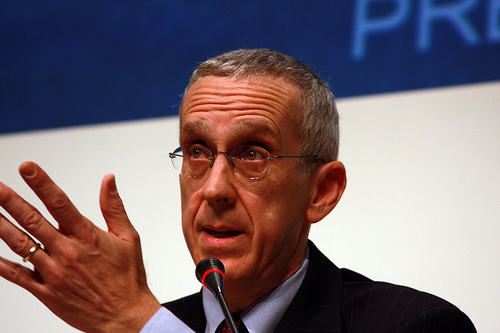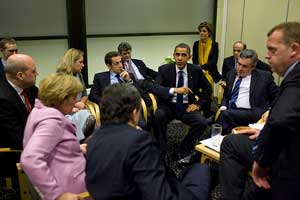The United States committed to cutting emissions 17 percent by 2020 under the Copenhagen Accord on Thursday. But it attached a pretty big caveat. The commitment only takes effect if Congress passes legislation requiring those reductions. That’s one very monumental “if.”
The US was responding to a Jan. 31 deadline by which all countries who had joined the Copenhagen Accord in Denmark in December had to list their non-binding pledges to cut greenhouse gases. The US promised to cut emissions “in the range of 17%, in conformity with anticipated U.S. energy and climate legislation, recognizing that the final target will be reported to the Secretariat in light of enacted legislation.”
The US Climate Action Network has been keeping track of commitments from other countries. Only 26 countries out of 192 countries have associated with the accord so far (the document was so hotly contested that no nations agreed to formally sign it.) However, those countries represent approximately 72 percent of total worldwide emissions.
While the US commitment is wishy-washy, on Friday the Obama administration did announce a plan to reduce the federal government’s emissions 28 percent by 2020. White House Council on Environmental Quality chair Nancy Sutley told reporters the aim was for the government to “lead by example.”
And it’s not a small example: the federal government is the country’s largest individual consumer of power, representing an estimated 1.5 percent of the country’s total energy use. It spent $24.5 billion on electricity and fuel in 2008, and it is responsible for 500,00 buildings, 600,000 vehicles, and purchases $500 billion in goods and services each year. Sutley estimated that if the government meets its targets, it would save 205 million barrels of oil each year and would be the equivalent of taking 17 million cars off the road.
Of course, this is only a drop in the bucket when compared to the emissions produced by the entire US. But after Obama’s disappointing comments on energy in his State of the Union address earlier in the week, it was a welcome piece of good news on the environment front.















